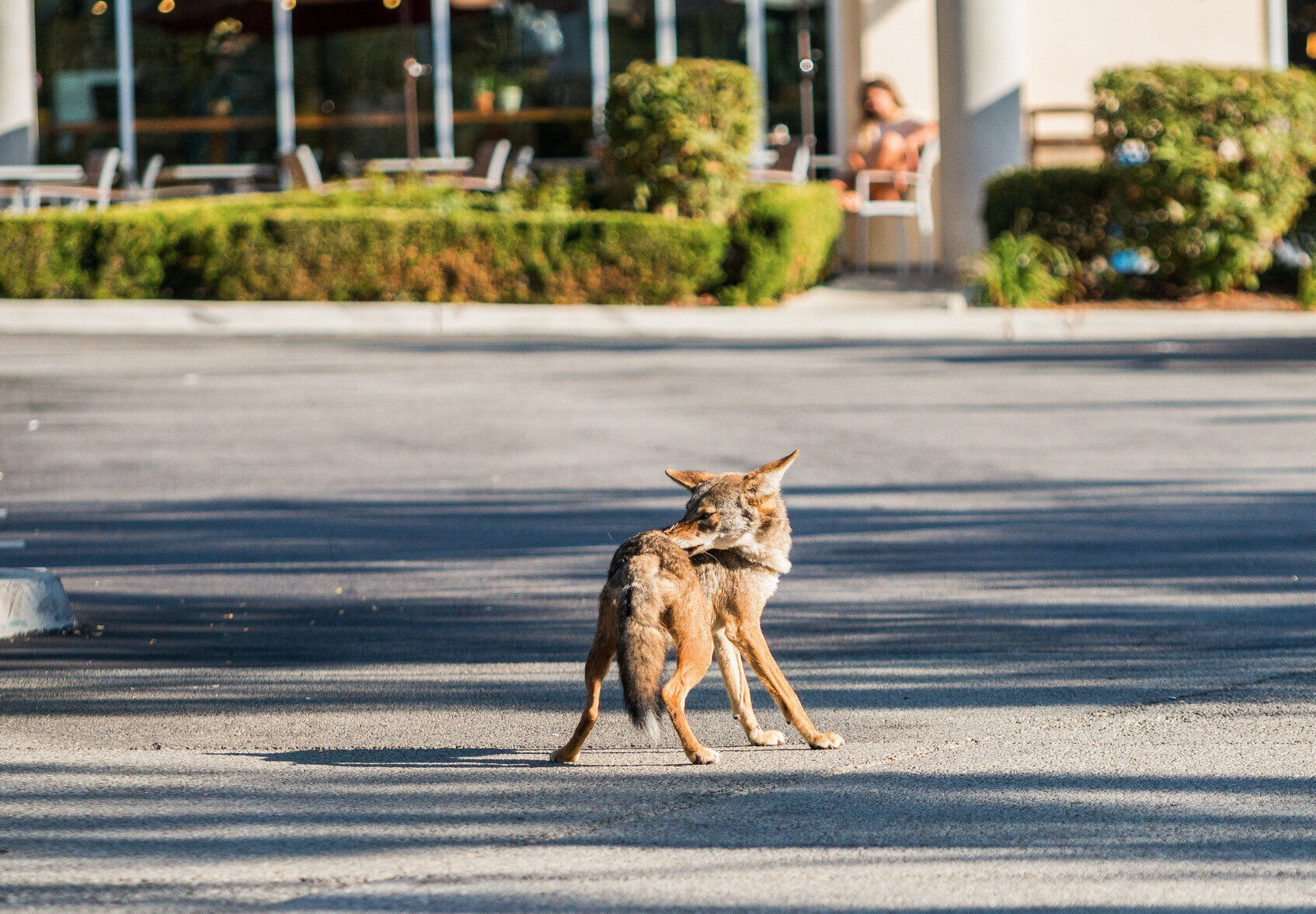(Photo | Ross Sokolovski)
A 16-year-old girl has become the talk of a Massachusetts town after fending off an attacking coyote earlier this week.
Anna Hollander says she’s “fortunate to be alive” after reportedly being attacked by what she believed was a coyote outside her Norwell, MA home on Sunday evening. Hollander states the attack happened while she was reading outside her home. The attack occurs as debates about coyote management in the Northeast intensify.
“All of a sudden it comes this way, the coyote, I hear the snarling and growling. I look at it and right as I do, it’s biting me,” she reported to the media this week.
“I swung my arm around. It jumped off, ran. I called 911 and here I am now.” she stated to reporters.
“The worst part is that it did not let go,” Hollander said. “He bit in this area.” she said as the teen pointed to wounds on her forearm.
“I’m not going to go out from a coyote.” she jests, describing the struggle.
In addition to her arm being wrapped in bandages, Hollander also sustained wounds to her shoulder.
As of the posting of this report, the coyote has not been located by officials and the state of the animal’s health cannot be determined. The month of March falls just outside the breeding season for coyotes in the Northeast, when females begin to seek out den sites for upcoming litters.
The city of Norwell lies just over an hour from Massachusetts’ border with the state of New Hampshire, where NH politicians are currently weighing the merits of a legislative bill driven by environmental groups seeking to impose additional protections on the wild canines. New Hampshire already has a closed trapping season for the animals.
While coyote attacks on people are rare, and usually attributed to disease issues, reports of brazen coyotes in urban areas and attacks on humans is increasing in recent years. Montreal, Quebec, which is just 5 hours north of Norwell, has reported 19 coyote attacks on people in the last three years (we actually reported on that fiasco as well).
The state of Massachusetts currently has a closed coyote hunting season. While the MA Division of Fisheries & Wildlife lists a limited trapping season, the use of foothold traps was banned by an animal rights-fueled voter referendum in the 1990’s - effectively ending the primary take of coyotes by way of trap in the Commonwealth. Although a limited hunting season is in place, suburban sprawl, dense housing, and no hunting allowed on Sundays all greatly limit access for licensed coyote hunters. Needless to say, one could deduce that (similar to Montreal) the state of Massachusetts holds an expansive coyote density.
(Photo | Steve Thompson, USFWS)
Evidence has suggested that regulated take of problem predatory wildlife, such as coyotes, can reinforce human/coyote territorial boundaries and instill a necessary fear in people. Negative reinforcement is extremely difficult in densely populated urban areas, leaving many cities and townships to resort to hiring wildlife control trappers or tedious hazing techniques.
Of course, the answer to human/wildlife conflict isn’t always lethal control. For wary homeowners looking to curtail urban coyote conflict, the most important suggestion we here at Furbearer Conservation can promote is to limit food sources for wildlife like coyotes. This includes removal of bird feeders, containing and securing trash, and refraining from feeding domestic pets outside.
As for Miss Hollander, we wish her a speedy recovery, and hope this unfortunate experience doesn’t tarnish her regard for wildlife and wild places in the future.










How are abundant and urbanized wildlife adapting to shifts in human presence? Some species feel the strain while others thrive.